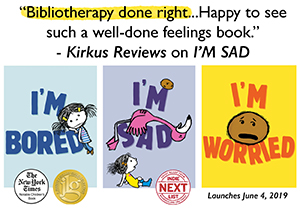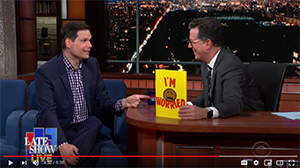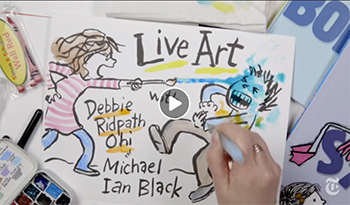I'd love to have (instrumentalist name) play along on my song. What's the right/wrong way of asking them?
 Thursday, July 1, 2010 at 8:11AM
Thursday, July 1, 2010 at 8:11AM  (Fiddler Amy McNally was kind enough to let me re-post this entry she made in her Livejournal)
(Fiddler Amy McNally was kind enough to let me re-post this entry she made in her Livejournal)
In an ideal world, performers who would like accompaniment on a specific song ask me ahead of time. This is good for everybody. Not only do I have a chance to say no (and explain why privately, if applicable), but should I say yes, I have advance warning that someone would like me to be in the same circle/concert as them, I get to hear the song first and digest it before going into the circle, we can rehearse it and I can figure out what's best for the song and what the singer has in mind for me to do, and then we can go amaze everybody.
However, it often happens that someone who's about to sing in a filk circle mentions that they'd love to hear their song with my accompaniment, and begin to play or sing.
As an accompanist, that puts me in a difficult position. There are a lot of reasons I might not want to play along with a song. Let's start with the most basic.
-Can I hear you? There's a reason I'm usually sitting on the floor closer to the middle of the circle, but sometimes I wind up sitting on the floor in the back. I like to be able to hear the song I'm playing along with, and if possible, look at your fingers for advance warning of chord changes. But that also means if you can't sing above a certain decibel level, I don't want to add an accompaniment line. Not only do I not want to risk drowning you out, I'm playing into my own left ear. If I can't hear you when I'm playing, I can't play along with you.
-Can I physically play that? Here's a hint: If your song has written, across the top of it, the words "CAPO ONE," I probably can't. Good keys are easy keys: A, C, D, G, and their respective minors? All awesome. B flat major? Not my favorite, but I can probably manage. C# minor? Less awesome. D flat is right out. On the other hand, those are discernible keys. If you don't have any other accompanying instrument and you sing in the key of H flat minor diminished et cetera, I can't play along. If you don't have an accompanying instrument, it's a great idea to get a note from somebody before you begin to sing. Also, there are tempo and meter considerations. If it's really fast and complicated, I probably don't want to mess it up. If, on the other hand, the song is of a moderate and reliable tempo, is composed mostly of one-four-five chord progressions for which you use standard chords, all of the verses are all of the same length and emphasis and chord
structure, it doesn't include a bunch of dramatic stops, you always put the same number of beats between verses, and the choruses always come at regular intervals, and the bridge doesn't change keys? There's a much higher chance of me being physically able to play along. I know that sounds really picky. I know y'all have seen me playing along with Barry Childs-Helton. But if you want me to play along with no advance warning, the song should be easy and predictable, and you gotta know it COLD. Speaking of which...
-Can you keep going if I play? If I play along with you, the song will change. I will be introducing random elements into your song. I may get lost. I may start playing in the wrong key. I may play over the bars that you usually use to get your bearings. I may play louder than your guitar and mess you up. I may suddenly stop playing and quietly re-tune a string. I might surprise the heck out of you by knowing the particular version of the song you play and shock you into forgetting the words. I have done all of these things. I will do them all again. Here's a good test: Play your song against a radio station that plays melodic music. The radio needs to be playing loudly enough that the lyrics they're singing are comprehensible when you're not playing.
I have to establish those three big questions. Only AFTER I know the answers can I begin to go into questions like:
-Do I want to play? This is an important question. You and your song are probably awesome! But maybe I don't want to play along. Maybe I need to rest my fingers. Maybe I really want to *listen* to your song, or sing along, or use something as a drum.
Maybe I'm trying not to be a filk hog. People are less likely to view accompanists as filk hogs, it's true. There's a different set of rules. But, if I've played along with the last five songs, it could be time for me to take a break and let other people accompany. Or, perhaps I haven't played along with a lot of things lately, but I'm gearing up to use my energy and time in the circle to do a piece of my own. I don't want to take more than my fair share of the filk-circle pie.
Maybe I don't think the song is right for the fiddle. Some songs just aren't. As an accompanist, I want to add just the right mix of spices and nuances to your song. Maybe a song needs rosemary and the violin would be like cinnamon. There's nothing wrong with that. If everything had fiddle (or cinnamon), the world would be a boring place.
Maybe I'm not in tune with you, and playing along would sound bad if I don't get a chance to pull you and me out in the hallway with the same tuner. Speaking of which: "Hey, [person from whom I would like accompaniment], are we in tune together?" Is NEVER an offensive question. EVER. I find being out of tune with somebody physically painful. I can usually compensate to some degree, because I have no frets, but some instruments (like a tin whistle, or a keyboard) just can't be tuned a little this way or that way to accomodate. I can ignore it, too, if I need to. But ignoring something doesn't make it go away, and other people will hear it.
It could even be that I don't like the song. Everybody has things they like and dislike. Me, I like asparagus more than I like brussels sprouts. I like the Rolling Stones a lot more than I like Neil Diamond. We are who we are. If you ask me to play along with a song, and that song is really awesome and easy and you know it cold, but it's about a blue-haired girl who works in a bookstore and plays the violin and she dies horribly and nobody remembers her, I'm probably less interested in accompanying you. It's nothing personal, it just might not be my cup of tea.
-How obvious will it be if I screw up? Just like any other performer, I don't want to sound crummy. Accompanying people adds an additional risk: If I sound crummy, you'll sound crummy, too. And I WANT to make you sound as wonderful as possible. So, once I've identified that yes, I can hear you, and yes, I can physically play along, and yes, you can keep going if I'm playing, and yes, I like the song, and we're in tune, and it needs fiddle, and I want to play along, even then I might not play along if it'd be really obvious every time I screwed up. When I accompany you, I am taking on the responsibility of making you look good, and I want to do it right.
The easiest way to make screwups less obvious is to open the song up to everyone, not just a particular accompanist. You don't have to make a big speech imploring people to play, you can just say, "Hey, everybody, this one's in D!" and go. Announcing the key is a great way to open up a song to the masses, because it also gives specific and helpful information, but doesn't take a long time to say. If other people are playing along, I can hear the chord progression a whole lot better, I can watch the guitarist closest to me for chord changes, I can weave the fiddle part in and out of other folks playing lead, it's great all around.
Sometimes, you don't want to open a song up that widely for mass consumption. That's okay. It's your song.
In that case, please strum firmly and often. If a song has a slow tempo and is only accompanied by a few, well-chosen chords that are only played intermittently to give the song flavor, it's much, muuuuuccchhh easier to get lost and play the wrong thing and sound really bad for a really long time. Nobody wants that.
Also, it really helps to know exactly where I might be sticking out like a sore thumb. If you need to vamp to give yourself time (to remember the words, to give people time to laugh, to draw out a long joke or emphasized line, to get somebody to turn the page for you, whatever), vamp using just one chord so I know the song isn't actually going anywhere. Try to always give the same amount of leeway beats/measures/strums between verses and choruses and choruses and verses. Give an extra few chords if the song modulates up a step, and maybe even say something, like, "And here we go from G to A!" It seems cheesy, but it can really help somebody who's playing along.
And that's just having an accompanist for the chorus and verses. THEN, there's instrumentals. Instrumentals are a big, wide-open opportunity for both of us to look bad, or awesome. Well, no pressure or anything, right?
If there's an instrumental:
---please decide, and then be firm on, whether the instrumental is a verse or a chorus. If for some reason, the instrumental is a verse AND a chorus, and you really need to play them that way, try and signal that, maybe by singing or humming the chorus, or strumming more loudly when you get to the chorus. I may keep playing and you might be tempted to keep playing along, or just strum into the next song segment. Don't. I probably have no idea where I am and I'm just playing until you start singing again.
---there's a chance you'll have learned or written the song to have an instrumental with a different chord structure than the verse OR the chorus. For instance, in Dave and Tracy's "Hey Conductor," there's an instrumental which is NOT "Hey Conductor"'s melody, but is, in fact, the tune of "The Wabash Cannonball." This happens occasionally, but don't expect your accompanist to know that. I'll get confused if you stop singing and then start using a different chord progression/timing/emphasis. If that occurs in your song, please consider not doing an instrumental at all, or changing it so that it occurs in the same place, but has the same length and structure as a verse.
---please don't put the instrumental after the first verse. Instrumentals tend to occur two-thirds of the way through the song, and that's good, because then somebody playing along has a chance to figure out the chord structure.
---you MUST be prepared to just chord through it and smile without me doing anything, because there's a chance I will just give you a panicked look and play like a tiny mouse.
---look at me. Am I playing loudly, with big, confident bowstrokes? Am I making eye contact with you and smiling and nodding? Are my feet moving in time to the music? If my eyes are closed and my bow is only moving a little and my brow is furrowed, I probably won't be able to do much for you besides get lost and blush a lot and look apologetic.
---don't expect me to play what that one guy played on that one album during that one instrumental that was really cool. I'm not that guy, I might not even be playing the same instrument, I might not be that cool, and it's really likely that I've never heard the song before, let alone the album, or that if I have, I've forgotten it.
On the other hand, maybe YOU've worked up something really cool to do during the instrumental, and you don't actually want me to play much. In which case, make eye contact with me and shake your head no as you go into the instrumental, and play loud and clear. I might not pick up on it, and I might play over you, and I'm really sorry. That's one of the risks you take. You're allowed to say things with words, too. There are a lot of things you can't communicate with meaningful glances and nods. "I just learned how to fingerpick the instrumental on Folsom Prison Blues! Hey, Amy, can you pick it up if I lose it?" and I can go, "Yes! I know every inch of that solo because I love that song!" or "Gee, I've never heard that before."
In general, please know that I'm glad you're playing! I'm glad you're singing! I want you to play. I want to hear it. Maybe I can't play along this time. Maybe I can. It's not the end of the world either way. It's music, it's the beat of blood in our hearts, it's the songs our souls sing, and it can't be a bad thing.
 Accompaniment in
Accompaniment in  Performance
Performance 








